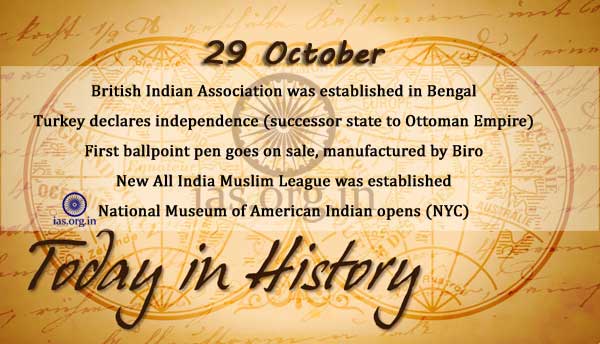Table of Contents
- Introduction
- Motivation and Background
- What Is Amplitude Amplification?
- Relationship to Grover’s Algorithm
- General Form of Amplitude Amplification
- Oracle and Reflection Operators
- Mathematical Foundation
- Amplitude Amplification Operator
- The Grover Iterate as a Special Case
- Quadratic Speedup over Classical Methods
- Algorithm Steps
- Geometric Interpretation
- Success Probability Analysis
- Amplitude Estimation Overview
- Applications of Amplitude Amplification
- Generalization Beyond Grover
- Constructing Custom Oracles
- Controlled Amplification
- Quantum Counting Integration
- Robustness and Error Considerations
- Comparison with Classical Repetition
- Complexity and Resource Requirements
- Circuit Example in Qiskit
- Use in Quantum Machine Learning
- Conclusion
1. Introduction
Amplitude amplification is a key quantum algorithmic technique that generalizes the core idea behind Grover’s search. It increases the probability of measuring desired states in a quantum system — providing quadratic speedup for a wide class of problems.
2. Motivation and Background
Classical search and sampling methods rely on repeated random trials. In contrast, quantum amplitude amplification boosts success probabilities using interference — enabling fewer repetitions.
3. What Is Amplitude Amplification?
Given a quantum state \( |\psi\rangle \) and a procedure to mark “good” states, amplitude amplification systematically increases the amplitude of those good states.
4. Relationship to Grover’s Algorithm
Grover’s algorithm is a special case of amplitude amplification:
- Grover searches for a marked item
- Amplitude amplification works with any initial distribution
5. General Form of Amplitude Amplification
Let \( \mathcal{A} \) be a quantum algorithm that prepares \( |\psi\rangle = \mathcal{A}|0\rangle \). Let \( \mathcal{P} \) be a projection onto good states. The goal is to amplify their amplitudes.
6. Oracle and Reflection Operators
Define:
- \( Q = -\mathcal{A} S_0 \mathcal{A}^{-1} S_f \)
- \( S_f = I – 2|\text{good}\rangle\langle\text{good}| \)
- \( S_0 = I – 2|0\rangle\langle 0| \)
The operator \( Q \) rotates the state towards the good subspace.
7. Mathematical Foundation
Let:
\[
|\psi\rangle = \sin(\theta)|\text{good}\rangle + \cos(\theta)|\text{bad}\rangle
\]
After \( k \) iterations:
\[
Q^k |\psi\rangle = \sin((2k+1)\theta)|\text{good}\rangle + \cos((2k+1)\theta)|\text{bad}\rangle
\]
8. Amplitude Amplification Operator
The operator \( Q \) performs a rotation in the 2D subspace spanned by good and bad components. Each iteration amplifies the amplitude of the good states.
9. The Grover Iterate as a Special Case
Grover’s algorithm is:
\[
Q = D \cdot U_f
\]
where:
- \( U_f \) marks the solution
- \( D \) is the diffusion operator
10. Quadratic Speedup over Classical Methods
If classical success probability is \( p \), expected repetitions are \( \mathcal{O}(1/p) \). Amplitude amplification achieves it in \( \mathcal{O}(1/\sqrt{p}) \) iterations.
11. Algorithm Steps
- Prepare initial state \( |\psi\rangle = \mathcal{A}|0\rangle \)
- Define good states via oracle
- Apply Grover-like iterate \( Q \)
- Measure after optimal number of iterations
12. Geometric Interpretation
Each iteration rotates the state vector toward the “good” axis. After \( \mathcal{O}(1/\sqrt{p}) \) steps, the angle aligns with good states — maximizing success probability.
13. Success Probability Analysis
After \( k \) iterations:
\[
\text{Success probability} = \sin^2((2k+1)\theta)
\]
Choose \( k \approx \frac{\pi}{4\theta} – 1/2 \) for optimal amplification.
14. Amplitude Estimation Overview
Amplitude estimation builds on amplitude amplification:
- Instead of sampling directly
- Uses phase estimation to determine \( p \)
15. Applications of Amplitude Amplification
- Search problems
- Decision procedures
- Quantum machine learning
- Quantum simulation
- Cryptographic verification
16. Generalization Beyond Grover
Amplitude amplification allows:
- Non-uniform initial states
- Non-binary success criteria
- Composable subroutines
17. Constructing Custom Oracles
The marking operation can be designed using:
- CNOT, Toffoli gates
- Phase oracles
- Comparators and encoders
18. Controlled Amplification
Controlled amplitude amplification allows conditional probability boosts — important for quantum walks and decision-based algorithms.
19. Quantum Counting Integration
Combining with quantum counting, one can estimate the number of solutions before applying amplitude amplification.
20. Robustness and Error Considerations
- Sensitive to over-rotation
- Needs precise control of oracle and \( \mathcal{A} \)
- Robust to moderate noise under proper gate optimization
21. Comparison with Classical Repetition
| Method | Complexity |
|---|---|
| Classical Repeats | \( \mathcal{O}(1/p) \) |
| Amplitude Amplification | \( \mathcal{O}(1/\sqrt{p}) \) |
22. Complexity and Resource Requirements
Gate depth depends on:
- Oracle complexity
- Implementation of \( \mathcal{A} \)
- Number of iterations \( \mathcal{O}(1/\sqrt{p}) \)
23. Circuit Example in Qiskit
from qiskit import QuantumCircuit, Aer, execute
qc = QuantumCircuit(3)
qc.h([0, 1]) # Initial superposition
# Oracle marking |11⟩
qc.cz(0, 1)
# Diffusion
qc.h([0, 1])
qc.x([0, 1])
qc.h(1)
qc.cx(0, 1)
qc.h(1)
qc.x([0, 1])
qc.h([0, 1])
qc.measure_all()
backend = Aer.get_backend('qasm_simulator')
result = execute(qc, backend, shots=1024).result()
print(result.get_counts())24. Use in Quantum Machine Learning
- Boosts correct classification states
- Reduces number of quantum samples
- Key for subroutines in QML models
25. Conclusion
Amplitude amplification is a versatile and powerful quantum primitive that extends the Grover framework to a wider set of applications. It embodies the quantum principle of exploiting interference to boost the probability of success — achieving quadratic speedups and enabling efficient quantum subroutines across computing, simulation, and learning tasks.


